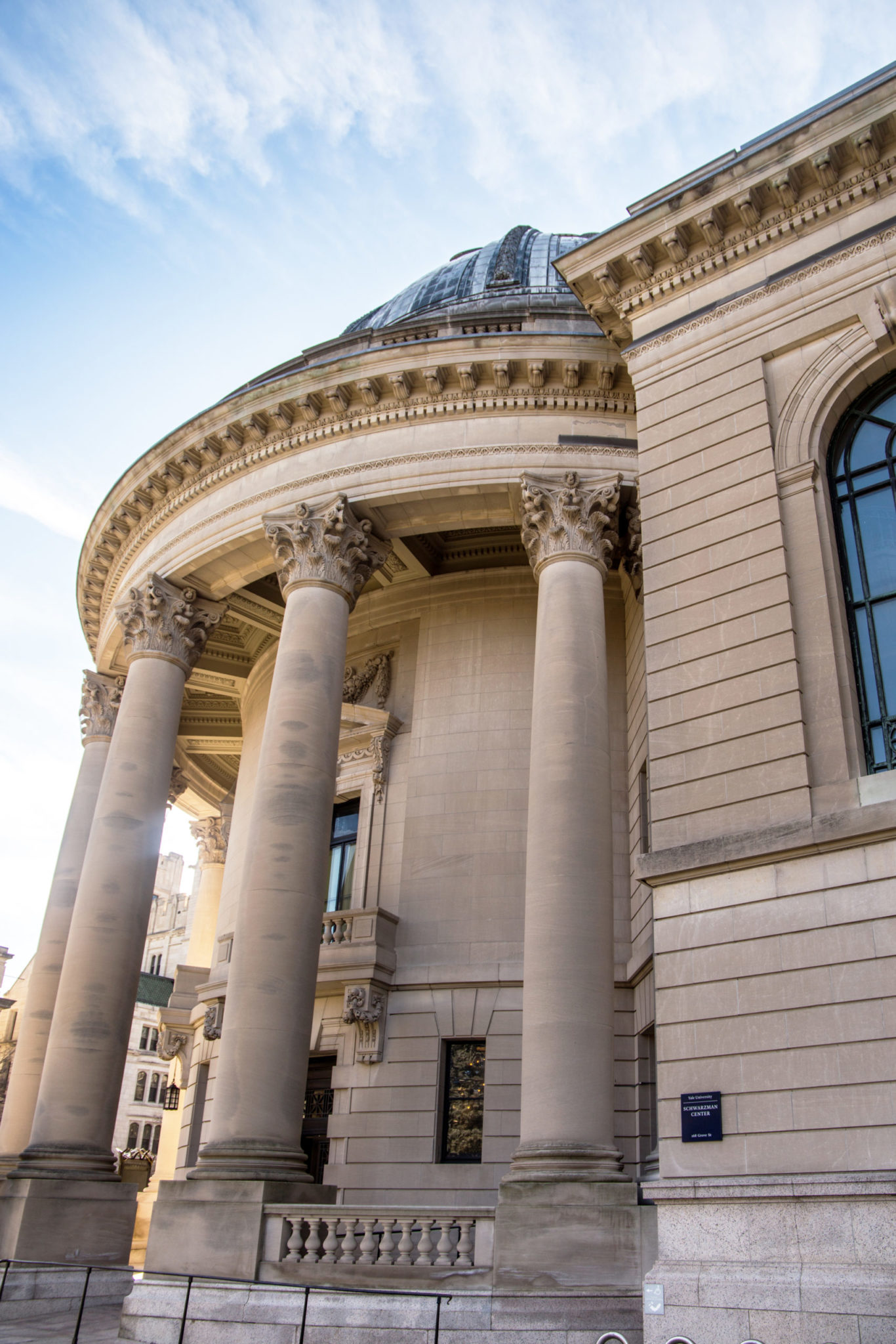
Lucas Holter
The Department of Education will investigate Yale, along with other institutions of higher education across the country, for allegedly failing to report billions of dollars in foreign funding.
The universities, including Yale and Harvard, allegedly failed to report at least $6.5 billion in foreign funding from nations such as China, Qatar and Saudi Arabia, according to documents of the department reviewed by the Wall Street Journal. On Feb. 11, the Education Department sent a letter to University President Peter Salovey requesting records on contributions totaling $375 million from foreign governments. The letter also asked Yale to disclose details of foreign funding used to develop the new Jackson School of Global Affairs and Yale Law School’s Paul Tsai China Center.
“It appears Yale University failed to report a single foreign source gift or contract in 2014, 2015, 2016 and 2017,” the letter stated. “However, Yale University says it ‘has a considerable presence abroad, represented by sites in dozens of cities and countries … [some] operated by Yale or a closely affiliated entity,’ claims ‘considerable success’ in setting up ‘jointly run laboratories with Chinese universities … funded by Chinese granting agencies … and has solicited and received directed foreign contributions advancing specific religious and ideological priorities.”
According to the Journal report, officials at the Department of Education accused universities of “actively soliciting” financial contributions from foreign governments and other entities hostile to the U.S. Those parties — per the document viewed by the WSJ — are potentially interested in stealing research from American universities and “[spreading] propaganda benefitting foreign governments.”
“Yesterday, Yale received a Department of Education request for records of certain gifts and contracts from foreign sources under Section 117 of the Higher Education Act of 1965,” wrote University spokeswoman Karen Peart. “We are reviewing the request and preparing to respond to it.”
University President Peter Salovey referred comment to Peart, who also responded on behalf of the Tsai Center and Jackson Institute. A Harvard spokesperson did not immediately respond to requests for comment on Wednesday.
The Department of Education’s investigation comes as the administration under President Donald Trump increases scrutiny over academic exchanges with universities abroad. In February 2019, revelations about a foreign data breach involving a School of Medicine professor drew concern about potential security risks of international academic collaboration. Genetics professor Kenneth Kidd shared genetic data with scientists from China’s Ministry of Public Security, which then used the information to oppress the nation’s Muslim ethnic minority. In January, Harvard chemistry professor Charles Lieber was charged with lying to federal officials about grants he received from China. The letter to Harvard seems to have been prompted by the investigation into Lieber.
In the letter, the Department of Education requested Yale to disclose records related to Chinese telecommunications companies, Huawei Technologies Co. and ZTE Corp.; two Russian groups, the Kaspersky Lab and Skolkovo Foundation; and Iran’s Alavi Foundation, among others. The letter also asked Yale to disclose a list of programs and individuals funded by these organizations or foreign governments. In addition, Yale will provide records referencing “conditions imposed or influence on any of the Institution’s curriculum, programs, or activities by any foreign source of a gift.”
The letter also asked Yale to provide a list of the foreign sites the University and its affiliates operate and a list of gifts from or contracts with foreign sources that benefited the Jackson School or Tsai China Center. Even as the trade war escalated, Salovey previously emphasized the value of international academic collaboration.
Salovey is one of the few Ivy League university presidents who have spoken publicly about the importance of international research collaboration. In a University-wide letter last summer, Salovey wrote that welcoming talented colleagues from around the world does not detract from Yale’s dedication to the integrity of research.
“Yale takes seriously all of the legal and regulatory requirements that safeguard our research enterprise and protect our scholars from the theft of intellectual property,” Salovey stated. “We pair our unequivocal commitment to careful research stewardship with another: international students and scholars are welcome and respected on our campus.”
Meanwhile, Yale has lobbied for legislation that protects cross-national research from foreign security threats. Recent lobbying disclosures forms filed with the Federal Election Commission demonstrate that Yale has been advocating for “potential legislation to address security issues posed by foreign governments and their agents for university research and collaboration.”
If Yale fails to disclose all records requested, the Department of Justice can pursue civil or criminal action. According to the DOE’s website, within the past year, the department has sent similar letters to Georgetown University, Texas A&M University, Cornell University, Rutgers University, the Massachusetts Institute of Technology and the University of Maryland.
The Paul Tsai China Center was founded in 1999 as the China Law Center and was renamed in 2016 following a landmark $30 million gift to Yale Law School from Joseph Tsai ’86 LAW ’90, who is the grandson of Paul Tsai LAW ’54 LAW ’57.
The Yale Corporation voted to transform the Jackson Institute of Global Affairs into a professional school last April. The University is raising donations prior to the school’s launch in 2022. When the Corporation voted to approve the Jackson School, then-University Provost Ben Polak told the News that the school would require an additional $200 million in donations to be fully funded.
Valerie Pavilonis | valerie.pavilonis@yale.edu
Olivia Tucker | olivia.tucker@yale.edu
Clarification, Feb. 13: A previous version of this article stated that the Tsai Center and Jackson Institute did not immediately respond to requests for comment on Wednesday. In an email to the News after publication, University spokeswoman Karen Peart clarified that her comments were made not only on behalf of the University at large, but also these other Yale institutes and centers. The article has been updated to reflect this information.







